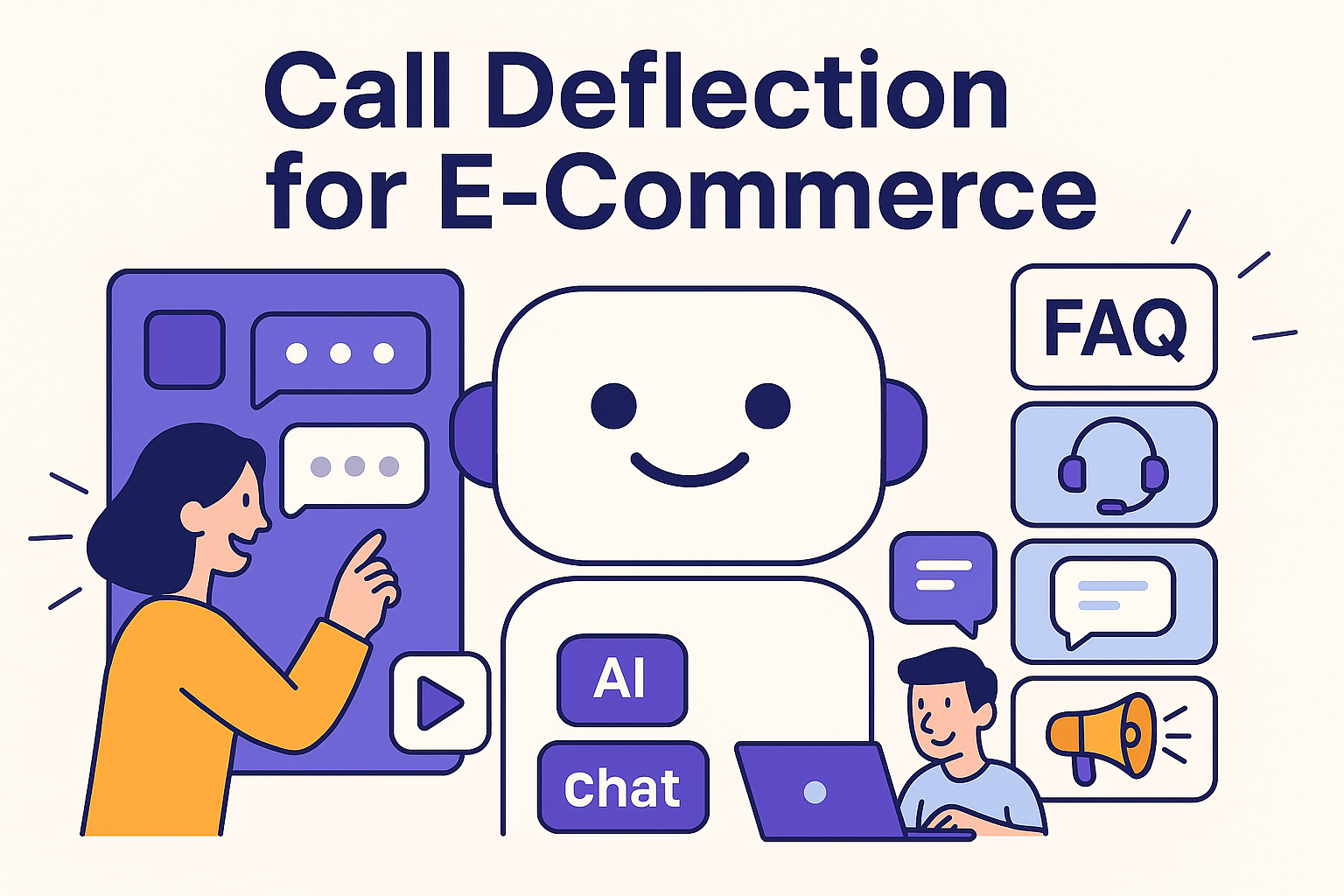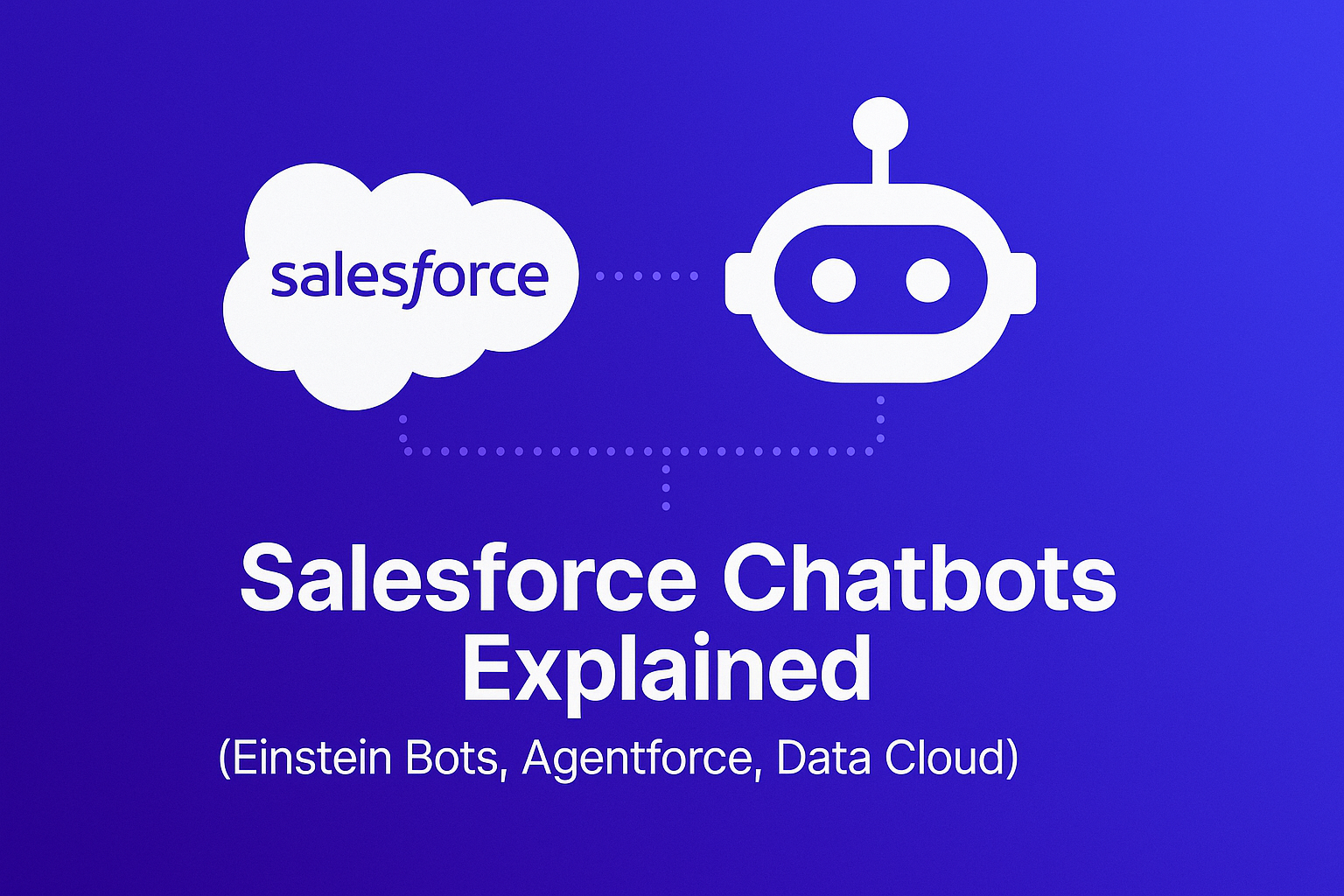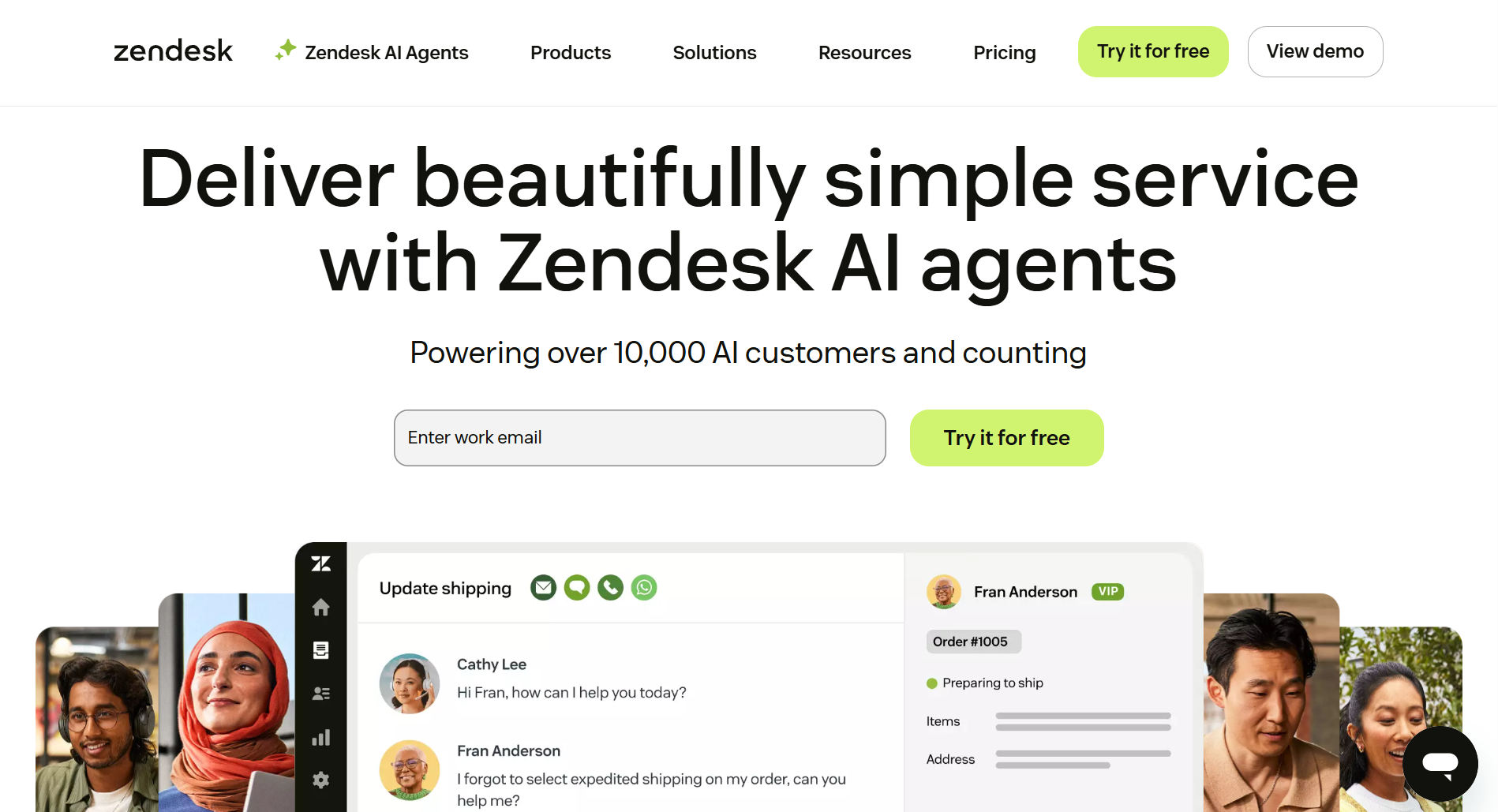Chatbot Pricing: How Much Does a Chatbot Cost in 2025?

Chatbots can cost anywhere from $0 to over $10,000 a month.
Yes, the price range is massive! Without standard pricing, it can be tough to know if you’re getting a fair deal.
Whether you’re exploring budget-friendly options or questioning your current choice, one thing is clear: the right chatbot should match your goals, include the features you need, and deliver the value you’re searching for.
Before examining costs, learn how to choose the right chatbot type to ensure you’re comparing the right options.
This article breaks down chatbot pricing—from understanding pricing models to comparing them effectively.
And remember, chatbot price isn’t everything—sometimes a pricier solution delivers higher ROI, saving you more in the long run.
Why Chatbot Pricing Matters
Price is a key factor in your decision. Choosing the wrong solution can lead to a wasted budget, frustrated customers, or missed opportunities.
You need to understand pricing to avoid hidden costs or a skyrocketing bill while growing.
Also, consider the challenges of switching later. A solution integrated into your page and backend is not easy to replace.
Contrary to the above, a higher price doesn’t always mean better quality. Don’t let price be the only factor when making your decision.
Factors Influencing Pricing
1. Chatbot Technology
Rule-Based Chatbots
Price Tag: $0 - $50 per month
Chatbots started as simple rule-based systems that followed predefined scripts. Think of buttons and messages to “hold the conversation.”
Such chatbot solutions are usually the cheapest.

Natural language processing (NLP) Chatbots
Price Tag: $50 - $350 per month
Then came natural language processing, which made it possible to understand customer questions, although the answers still depended on pre-written scripts.

AI-Powered Chatbots
Price Tag: $100 - $1.000 per month
Today, AI-powered conversational agents are on the rise. These bots can understand questions and respond in a more natural, human-like way.
AI-based bots generally have a higher price tag but can offer better return on investment (ROI) through advanced features and scalability.

2. Features and Functionalities
Basic vs. Advanced Features
Basic bots handle simple tasks like FAQs, while advanced bots manage complex workflows and personalized interactions.
AI Version and Custom Knowledge Base
AI-powered bots with custom knowledge bases offer more natural conversations and tailored responses, raising the price but improving accuracy and personalization.
Website Scraping
Some bots scrape real-time data from your website, providing dynamic answers. This feature adds cost but improves data accuracy.
Integrations
Integrating with Helpdesks, CRMs, ERPs, or APIs adds functionality but often increases cost.
Multi-Language Support
Multi-language support is essential for global businesses but comes with an added price.
Channels
Standard channels like webchat and popular messengers usually don’t affect pricing. However, mobile in-app chat or less common messengers may come with an additional cost.
These features drive the costs, so balance your business needs with the features that offer the best value.
3. Solution Focus
Price also depends on the vendor's target audience. Larger businesses need advanced features like custom integrations, scalability, and high security driving up costs. Smaller businesses focus on affordability and simplicity, leading to lower prices.
Small Websites
Price Tag: $0 - $100 per month
For small websites, basic chatbots often suffice. Tools like Make or Zapier handle integrations easily, with low-cost or free options—perfect for smaller budgets.
Chatbot Solution Example: Chatbase.co

Professional Chatbots (SMBs)
Price Tag: $100 - $1.000 per month
For small to medium businesses, chatbots offer a balance of cost and functionality. They typically include key features like CRM integration, analytics, and multi-channel support. These solutions come with fast self-service onboarding, a manageable learning curve, and accessible support, often including a customer success manager—without the enterprise price tag.
Chatbot Solution Example: Amio.io

Enterprise Chatbots
Price Tag: $1,000+ per month
Enterprise chatbots provide on-demand customization, on-premise deployment, and tailored integrations. Pricing is negotiable, with standard features often carrying additional costs. Another aspect to watch for is any integration costs. These solutions are built to scale with advanced security and dedicated support but they come at a premium price.
Chatbot Solution Example: Ada.cx

4. Development Approach
To provide a comprehensive view, there are several approaches to building chatbots, each with its benefits, limitations, and cost considerations. Here's a comparison of the options:
Off-the-Shelf Solutions
Price Tag: $0 - $1.000 per month
Off-the-shelf chatbot platforms let you easily build bots using a conversational designer, making them affordable and quick to deploy.
The only downside I can think of is that your data is stored with a third party, and you depend on their features and updates.
Custom Chatbot Development (In-House)
Price Tag: $8.000+ per month
Building an in-house custom chatbot gives you full control over features and functionality. While it offers maximum flexibility, building a chatbot from scratch is costly due to the need for a skilled team and ongoing maintenance.
Chatbot Agency
Price Tag: $5,000 - $50,000 one-time
Working with agencies or third-party chatbot developers gives you access to external expertise, often cheaper than in-house development. However, ongoing maintenance and infrastructure costs should still be considered.
Here are a few well-known custom development chatbot agencies:
- Chatbots.studio
- BotsCrew.com
- halo-lab.com/services/all/chatbot-development
5. Usage and Scalability
Several factors influence chatbot pricing, both during the initial setup and as your chatbot evolves. Let’s take a closer look:
- Number of Bots: This factor matters if you have multiple websites or support several languages.
- Number of Messages: Pricing can depend on the volume of messages exchanged with customers.
- Number of Conversations: Some platforms charge based on the number of conversations, where a conversation is a series of messages exchanged between the bot and customer over a given period (usually a month).
- Automated Answers: Some solutions count the number of automated messages, while others charge based on the number of conversations resolved through automation.
Pricing Models
Ok, enough theory. Let’s break down the most common pricing models:
How to Compare Chatbot Pricing Models
After identifying chatbot providers that meet your requirements, the next step is to compare the prices.
Subscription solutions can be challenging to evaluate because of differences in scaling factors, features, and pricing plans. Follow this step-by-step guide to simplify the process:
1. Identify Chatbot Features
Start by listing the features you need, such as supported communication channels, integrations, or multi-language capabilities. Let's take this example:
- AI (ChatGPT) support
- Zendesk integration for handover
- Shopify integration - order status, manipulation, etc.
- Knowledge base - product feeds, website scraping
- Channels - webchat, WhatsApp
2. Understand Chatbot Load and Possible Growth
Evaluate your initial chatbot load, including the number of messages, conversations, and bots, while projecting future growth. For new implementations, consider that a significant shift from email or phone channels may occur (5-15 % based on your target audience).
Here is our example:
- Number of chatbots - 3 (English, French, German)
- Amount of interactions - 1,000 (WhatsApp and web-chat combined)
- Potential growth - 2,000 interactions (I want to make chat more attractive over email and phone)
3. Find the Right Pricing Plans
Identify the pricing plans that meet your minimum required features for each shortlisted solution. Sometimes, a higher-tier plan might be more cost-effective for your expected chatbot load, so carefully evaluate which plan best fits your needs.
Here is my pick based on the features and expected load above:
- Amio - AI Expert Plan - starts at $350 a month
- Kore.ai - Advanced - starts at $180 a month
- Tidio - Growth - starts at $179 a month
- Botsonic - Advanced - starts at $299 a month
4. Calculate the Starting Price
Use your current load to estimate costs. Check for any required add-ons that would fulfill your needs but increase costs.
Amio
- $350 a month - AI Expert plan
- ✅ 1,000 automated requests
- ✅ AI (ChatGPT)
- ✅ Zendesk
- ✅ Shopify
- ✅ Knowledge base - product feeds, website scraping
- ✅ Channels - webchat, WhatsApp
Kore.ai
- $180+ a month - Advanced plan
- ✅ 1,000 sessions
- ✅ AI (GenAI)
- ✅ Zendesk
- ✅ Shopify
- 🤔 Knowledge base - product feeds, website scraping - Add-on contact sales
- ✅ Channels - webchat, WhatsApp
Tidio
- $179 a month - Growth plan
- ✅ 1,000 conversations
- +$210 - 300 AI Conversations (if you want more, you have to upgrade to the Plus plan for $ 749 per month
- ✅ AI (Lyro AI)
- ❌ Zendesk - Tidio can create only tickets in Zendesk - no complete conversation handoff
- ✅ Shopify
- ❌ Knowledge base - product feeds, website scraping
- ✅ Channels - webchat, WhatsApp
Botsonic
- $299 a month - Advanced plan
- ✅ 12,000 messages
- ✅ AI (GPT)
- ✅ Zendesk - +$199 add on
- ✅ Shopify
- ✅ Knowledge base - product feeds, website scraping - Add-on contact sales
- ✅ Channels - webchat, WhatsApp
5. Projecting Future Costs and ROI
Comparing chatbot solutions can be complex. Platforms often use different metrics, such as conversations, automated messages, or session durations, to measure usage. Furthermore, not all platforms include every feature you need from the start, which may lead to trade-offs.
To make an informed decision, evaluate the annual costs as your chatbot usage scales over time. Calculating ROI is also important but can be difficult—customer case studies and platform commitments can provide helpful insights for realistic projections.
Below is a table summarizing the costs, scalability, and ROI potential of various platforms:
Conclusion
Chatbots are an effective way to improve efficiency. To understand the potential savings, consider the cost of resolving a customer query manually. A simple calculation involves dividing total support costs (including salaries, office expenses, and software costs) by the number of resolved interactions. This cost usually ranges from $0.50 to $2.50 per ticket, depending on the country and industry.
In contrast, chatbots can slash these costs significantly—from $0.05 to $0.25 per ticket. Even a pricier chatbot solution will save you money in the long run. The real game-changer isn’t just the cost but how much automation, scalability, and enhanced customer experience it delivers.
So, when choosing a chatbot provider, prioritize solutions that drive better automation rates, improve customer satisfaction, and align with your growth plans.
If you need assistance building a business case for your company, feel free to reach out. We’re here to help, regardless of the chatbot solution you ultimately choose. ✌️
Book a 30-minute session where we will find out how AI bot can help you decrease call center costs, increase online conversion, and improve customer experience.
Book a demo



